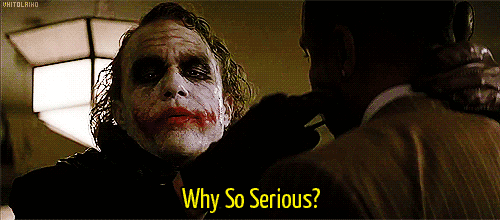I still haven't seen the film, so I can't judge the form yet...
But being inevitably spoiled on various aspects of it, I have to say that the direction Phillips has taken seems... to make sense?
The talk about how Arthur can never completely become the Joker we know and how he's more of a vehicle to show something else, all of that was already clear to me in the first film.
I mean, this guy was introduced as a joke to everyone: a joke to his mother, who manipulated him, a joke to the medical community and the administration, who take his illness too lightly, a joke to those around him, who don't take him seriously, and so on...
All this to end up in the worst joke of all: being taken as a symbol of emancipation, and worse as an endorsement of violence, by the most desperate people.
I never saw Philips' approach as a demonstration against incels
(or whatever the buzzword is), or as an anti-rich pugilism
(which at this point is a gag when it comes to artwork analysis/layground), but as a way larger and pessimistic picture of modern decaying societies, even if it sounds like the infamous meme. A story about how absolutely everyone is wrong about Arthur Fleck, turning him into kind of a
pathetic catalyst of decline and violence, with the ultimate film's strength to eventually fool part of the audience into cheering for a massacre.
So seeing the sequel continue to explore how Fleck will inevitably be consumed by the
(fake) symbol he's taken as only makes perfect sense to me.
I know this isn't the case now, but I was 99.5% expecting
the film ending with Harley killing him, thus also falling into the trap of that “Joker” and pursuing the "cycle of violence" in what was probably always the only logical outcome for this particular take.
The D cinemascore and Rotten Tomatoes.... yikes. WB is really having it with their DC movies lately. Those are just dismal results.
That's... really a disaster. Damn.





